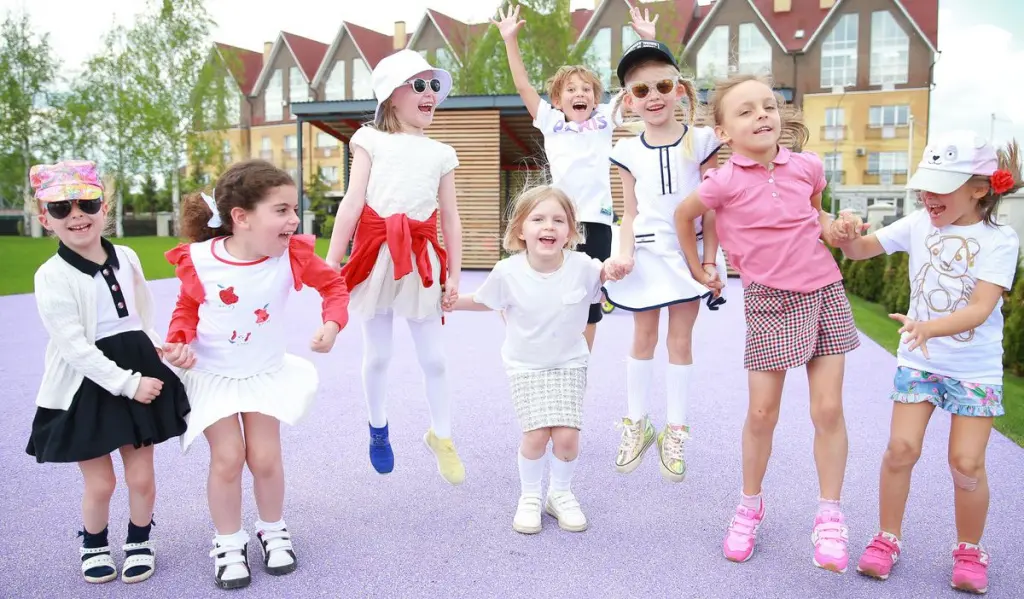«EYFS» in British kindergartens

Preschool education in the UK is taken very seriously, and its main difference from the modern Russian system is the presence of a single state-controlled early development program - Early Years Foundation Stage (EYFS), which is based on many years of pedagogical research and which is constantly being improved taking into account current realities (current version adopted in 2008).
The uniqueness of the British approach to education lies in the combination of tradition and innovation, where methods are improved and principles are preserved. Thus, the three basic and unchanging principles of EYFS are that every child:
- is unique in all its manifestations;
- is in a state of constant study of the surrounding world;
- becomes strong and confident only in a positive relationship.
At the same time, children can learn and improve in different ways and at a different speed, determined by the needs of the individual, but the main condition for success is an unbreakable positive partnership between children, their parents, educators and teachers.
How British kindergartens work
From birth, British children can enter the "Birth to Three Matters" programme. Preschool educational institutions provide this program and accept babies from 3 months (even the heirs of the British crown attend such kindergartens). Right from kindergarten, upon reaching the age of 5 (by the beginning of the new school year), each kid goes to primary school.
For the assessment of preschool institutions in the UK, there is a special rating of the state regulator (OFSTED). It is quite simple and is used by parents when choosing:
- Outstanding ;
- Good;
- RequiresImprovement;
- Inadequate.
The structure of preschool educational institutions:
| Public | Private | |
| Working hours | 08 a.m.- 09 a.m. — 03 p.m. | 7:30 a.m - 6:30 p.m. |
| Features | don't work during holidays | citizens and residents of the United Kingdom are entitled to 3 hours of free admission per day |
The number of teachers in groups is strictly regulated, depending on the age of the kids. So, oneteacherhas:
- 3 kids younger than 1 y.o.;
- 4 kids — 1-3y.o.;
- 13 kids — 3-5y.o.
Every UK educational institution has EYFS that includes the education, development and support of all children from birth to 5 years.
What does EYFS include?
EYFS is dedicated to the development, education and well-being of young people in Foggy Albion. This task is reached by the main fields developed by preschool institutions, namely:
- Language and Communication: Children learn to listen and speak, immerse themselves in a language environment, develop self-expression skills, gain self-confidence by learning to communicate in a variety of situations.
- Physical development: mobility and coordination of movements, various opportunities for activity, understanding the importance of regular exercise, learning the idea of healthy food.
- Personal, emotional and social development: the basics of correct behaviour and emotion management, a positive perception of oneself and others, learning to form respectful relationships and form social skills.
- Acquaintance with mathematics: understanding the number series and the use of numbers, developing skills in counting (addition/subtraction) and solving simple tasks, mastering units of measurement, experience in recognizing geometric shapes.
- Literacy: In kindergarten, British children learn the art of reading, begin to write, learn to use access to reading resources, forming the basis for a passion for reading in the future.
- Design and Art: toddlers get the opportunity to express their thoughts and feelings through music, dance, painting, design, role-playing and more.
- Understanding the world: awareness of the physical world and one's environment through a variety of opportunities for observation, research, the study of other people, the environment, technology.
When the child reaches the age of four, the level of knowledge and skills is checked, which gives a clear understanding of which of the seven main areas the pupil needs help or, conversely, an increased load that would not let him get bored.
Features of EYFS
As you can see, the set of tasks is impressive. But teachers approach the educational process with a deep understanding of the nature of children: knowledge and skills are most effectively delivered to the child through play, so there are no lessons in British preschool institutions, and learning and development take place exclusively in a playful way.
Another feature is the thematic presentation of the educational program and the weekly change of topics. In this way, maximum involvement is achieved and the danger of losing the interest of the young audience to the information received is eliminated. Learning happens quietly, in an atmosphere of fun and joy. A creative approach allows you to combine cognition with the development of various skills (for example, we study the animals of Africa - and at the same time count the giraffes in the picture).
Among the peculiarities of British preschool education, which are quite surprising for Russian parents, we can name the menu in kindergartens: during the week, kids are offered to try dishes of different cuisines - from Italian classic pizza to exotic sauces. And this is also the knowledge of the world! The menu includes fruits and vegetables as standard, parents can discuss the need for a vegetarian or meat diet.
EYFS is a holistic, well-tested system that allows a preschooler to find their identity, feel their own significance, and learn basic human values.
EYFS is the basis of CIS International School operating in Russia: if you are interested in the described preschool education system, call and you will find out how to get all EYFS bonuses without leaving your country.



